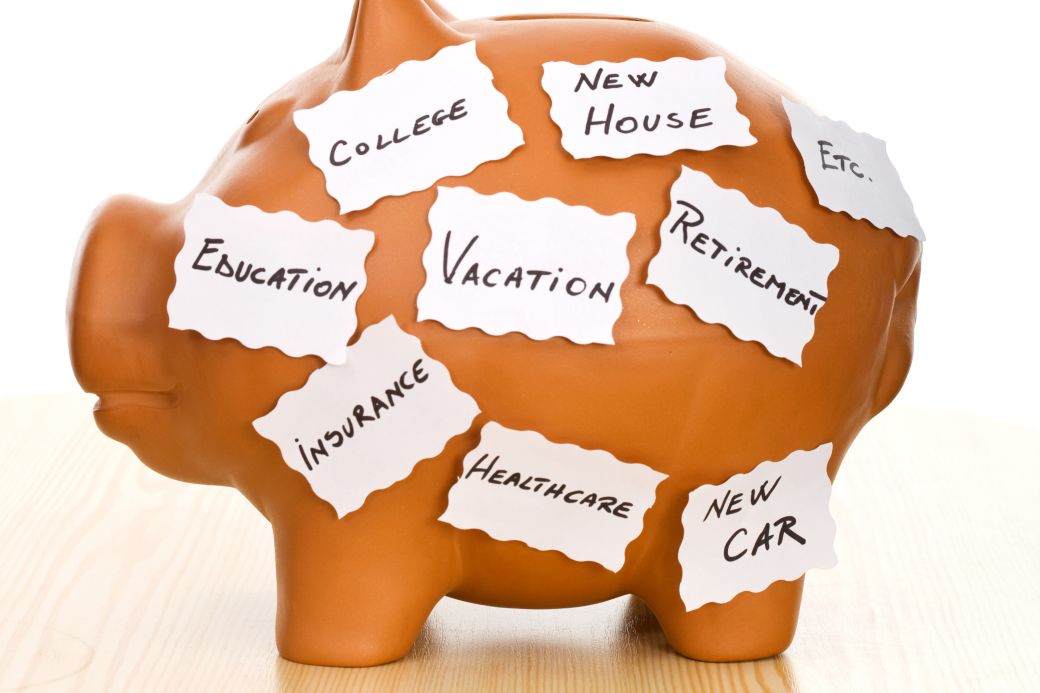If you’re like many Americans in their 20s to 40s, chances are you have multiple life transitions and goals you’re pursuing at any given time. You’re likely focused on growing your family, changing jobs, paying off debt, saving for retirement, building a college savings plan, buying a home, and more.
Purchasing a home and saving for a down payment can seem like a pretty lofty idea when you have so many conflicting goals pulling on your income, however it doesn’t have to be complicated. Here are some easy steps to take in saving for your home purchase, while pursuing other goals.
1. Prioritize
You can do it all, but you can’t do it all at once. Brain dump a list of the goals you’re currently working towards (short- and long-term) and then prioritize. If you’re married, do this separately from your spouse and then come together for a conversation. Determine:
- What’s most important for you to get done now.
- What’s important to get started.
- What you can reduce or even eliminate completely for now.
If a home down payment is a top priority, look into how you can still make progress with your debt pay down and retirement savings goals while potentially reducing your travel budget or goal of launching your own business for now.
2. Determine Your Savings Goal
Your home purchase price will depend on the area you want to live in and the type of home you’re buying. Research to determine the average price point for a home in your desired area and from there, how much mortgage payment (including principal, interest, taxes, and insurance) that your budget can afford while still pursuing other financial goals, such as retirement savings and debt pay down.
You’ll then be able to see if you should aim to put a 5%, 10%, or 20% down payment on your new home. This down payment amount will be your savings goal.
3. Open Separate Savings Accounts
If you’re serious about saving for a new home, you need to keep the money separate from other goals. Open a separate “down payment” savings account, and open accounts for any other big goals, such as an emergency fund or travel fund.
This will allow you to specifically designate amounts you want to save towards each goal on a monthly basis and see what you have earmarked for each at any given time.
4. Decide How Much to Put Toward Consumer Debt vs. a New Home
If you have consumer debt or student loans, you should know that the balances owed and payments due will impact what you’re able to be approved for on a mortgage.
If the thought of trying to tackle the balances in full before beginning to save for a home down payment makes you uncomfortable, review your budget and determine what you have available for extra savings and debt pay down each month. Divide that extra amount in half and put 50% towards paying more than the minimum due on your debt and 50% towards building up your home down payment fund.
5. Have a Plan for Extra Cash
Whether it’s bonuses, tax returns, or gifts, if you end up with extra cash on hand, plan to follow the 50 / 30 / 20 rule. Apply:
- 50% toward debt pay down
- 30% toward savings goals
- 20% toward a splurge
If you have enough discipline to curb the splurge, throw the extra 20% towards your savings goal as well.
6. Review and Adjust as Necessary
You’re likely in a stage of life where things are constantly changing. Make a note to review your budget, savings goals, and progress on a monthly basis. Note areas where you can cut back, where you’ve spent more than planned, where you can save more, and where you can make improvements.
Don’t be afraid to tweak things, reduce savings in certain areas for a fixed period of time, and seek out new ways to save additional funds.
Related: Planning to Buy? Have a Plan for After Closing, Too


